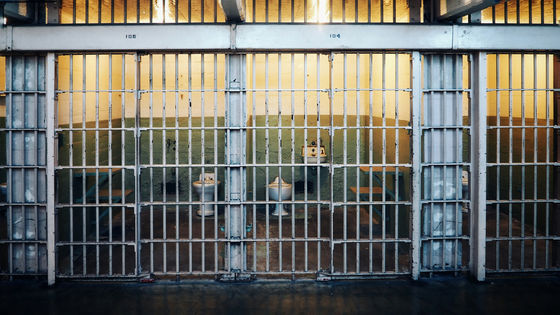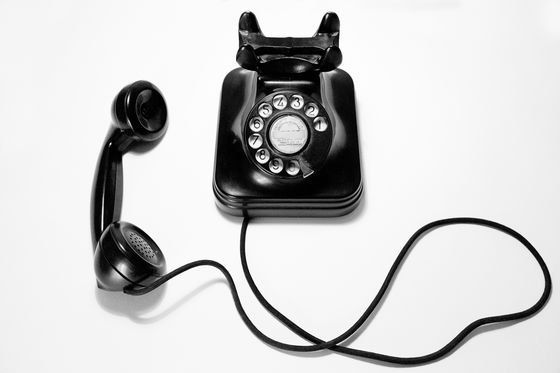The FCC announced that it would significantly reduce the cap on voice and video calling rates from prisons and jails, estimating that families of inmates could save $790 million a year

On July 18, 2024, the Federal Communications Commission (FCC) announced that it would significantly reduce the fees charged for phone and video calls made from prisons and jails.
Worth Rises — FCC VOTES UNANIMOUSLY TO SIGNIFICANTLY LOWER PHONE AND VIDEO COMMUNICATION COSTS AFTER DECADES OF EXPLOITATION BY PRISON TELECOMS
https://worthrises.org/pressreleases/2024/7/18/fcc-votes-unanimously-to-significantly-lower-phone-and-video-communication-costs-after-decades-of-exploitation-by-prison-telecoms

The FCC announced that it has passed rules on 'fees charged for telephone and video calls from prisons and jails.' This will cut the maximum per-minute charge for telephone calls in prisons and jails across the United States in half, and a new maximum per-minute charge will be set for video calls. This is the first time that the FCC has set rules for communications in prisons other than telephone calls. In addition, prisons and jails will be prohibited from setting any fees, including deposits.
Worth Rises, a nonprofit advocacy group created to dismantle the American prison industry and end the exploitation of prisoners, estimates that the new rules would affect 83% of all prisoners (about 1.4 million people) and save prisoners and their families at least $500 million a year.

Worth Rises argued that the new rules could have the following effects:
- Inmates will have better access to support systems, improving their well-being and their chances of successful reintegration into society.
It could increase economic stability and strengthen families for millions of Americans who have loved ones in prison.
It will curtail and moderate prison communications services that have exploited inmates and their families for decades.
It would provide a catalyst for correctional institutions and their industry partners to reverse the mass surveillance projects that have expanded so rapidly.
'For too long, families across the country have struggled to stay in touch with their incarcerated loved ones. Too many have gone into debt just to stay in touch, or lost contact altogether,' said Bianca Tyreke, executive director of Worth Rises, which fought for the new rules. 'Relief is finally on the horizon. We're incredibly grateful that FCC Chairman Jessica Rosenworcel and her fellow Commissioners recognize the harm that unreasonable communications costs cause to incarcerated people, their families, communities and the public. It's impossible to calculate the impact this will have on the millions of families with loved ones in prison, but we know it will save more than $500 million a year.'
A key driver of prison data rate reductions is the exclusion of security and monitoring costs and fees. 'For decades, the costs of ever-expanding, intrusive monitoring services have been passed on to prisoners and their loved ones in prison. But the new rules will prohibit prison communication services from recovering these costs from users. This change is the result of a long-standing effort by Worth Rises,' explained Worth Rises.

'We are pleased that the FCC has agreed that people in prison and their families should not have to pay for harmful and intrusive surveillance,' said Tyreke. 'Under the new rules, prisons and jails will have to pay for the monitoring services they want to use. If they choose not to pay, as the prison communications industry fears, that's a business problem for the prison communications industry to solve, not the FCC. In addition to the tremendous savings we expect from the new rules, we are hopeful that they will help stem the expansion of surveillance services used by correctional agencies and industry to surveil our communities.'
The new rules will go into effect in early 2025 and will reduce voice and video calling rates per minute as follows: At the time of writing, 24 state prisons and 90% of detention centers that charge high rates will be forced to lower their calling rates, and voice calling rates will fall by 8 to 14 cents (about 12.5 to 22 yen) per minute.
| Voice calls (per minute) | Video Calls (per minute) | |
|---|---|---|
| prison | 0.06 dollars (approximately 9.4 yen) | $0.16 (about 25 yen) |
| Detention center (over 1000 people) | 0.06 dollars (approximately 9.4 yen) | $0.11 (approx. 17 yen) |
| Detention House (350-999 people) | 0.07 dollars (about 11 yen) | $0.12 (approx. 19 yen) |
| Detention House (100-349 people) | $0.09 (approx. 14 yen) | $0.14 (about 22 yen) |
| Detention House (under 99) | $0.12 (approx. 19 yen) | $0.25 (approx. 39 yen) |
'This is a major milestone in the long journey to right a market dysfunction that has wronged incarcerated people and their families for decades,' said Mignon Clyburn, a former acting FCC chair and member of the board of directors of the Benton Institute for Broadband & Society. 'I have nothing but praise for Chairman Rosenworcel and my fellow Commissioners for moving this case forward, and for the hard-working FCC staff who have crafted strong new rules that are faithful to the Martha Wright-Reed Just and Reasonable Communications Act .'
The introduction of the new rules will have a serious impact on the prison communications industry, with prison communications losses expected to reach tens of billions of yen per year. This comes as the largest prison communications companies, Aventiv and ViaPath, are trying to weather the financial crisis. Aventiv has defaulted on $1.3 billion in debt , and ViaPath was reportedly close to a $1.5 billion refinancing deal, but the deal was scrapped due to the introduction of the new rules.
Massachusetts, Minnesota, and Colorado have passed bills to make telephone calls free in prisons and jails, while California will make phone calls free in 2022 and Connecticut will make them free in 2021.
Related Posts:
in Note, Posted by logu_ii







